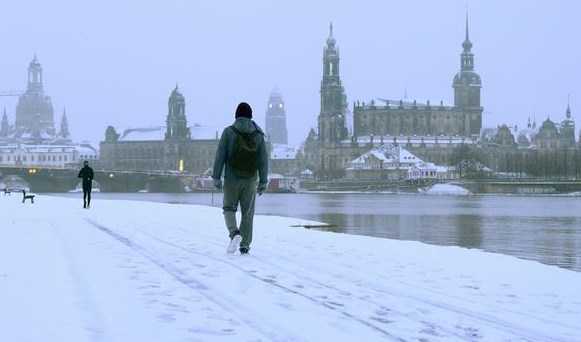Number of German cities prepare for winter: Reports
Several German cities are preparing measures for the event of energy shortages in winter, including heated public shelters.
-

Number of German cities preparing for winter: Reports
A number of German cities are preparing for winter energy shortages, including the creation of heated public shelters for those who cannot afford heating at home, according to Bild on Sunday.
According to the report, these centers will be established in Ludwigshafen, Rhineland-Palatinate, among other places.
"With an eye on autumn and winter, we are preparing for all emergency scenarios," the city's mayor Jutta Steinruk was quoted as saying by Bild.
Read more: Germans told to wear a sweater to cope with soaring energy prices
The municipalities of Neustadt, Frankenthal, and Landau intend to build similar facilities. Cities may use temporary COVID-19 facilities, which will open in 2020 in sports arenas, exhibition halls, and concert venues, according to Bild.
Amid tensions in the East #European region, how will European countries deal with their dependence on Russian gas? And will #Qatar be able to provide the massive demand?#Russia pic.twitter.com/IJZXVEASjk
— Al Mayadeen English (@MayadeenEnglish) February 11, 2022
According to the report, it is also planned to turn off building facade lighting and traffic lights at night. According to Bild, the authorities in Rendsburg, Schleswig-Holstein, decided not to install an ice rink at the city's Christmas market because the cooling equipment is too energy-intensive.
The Western sanctions on Russia led to Europe's energy crisis over the last year. Disruptions in logistical and financial operations have weakened supply chains and resulted in a global increase in energy prices.
Read next: Germany unable to heat homes next winter: Minister
"We have a gas crisis in Germany although supply security is currently guaranteed, and the filling level of gas storage facilities is increasing," Vice-Chancellor and Economy Minister Robert Habeck said earlier.
If after the completion of the traditional maintenance work on the Nord Stream gas pipeline in July "there will be an aggravation of the situation," then "we will find ourselves in a scenario where we will not have enough gas to survive the winter," he concluded.
Read next: German banks prepare for energy-related defaults: Bloomberg

 2 Min Read
2 Min Read








